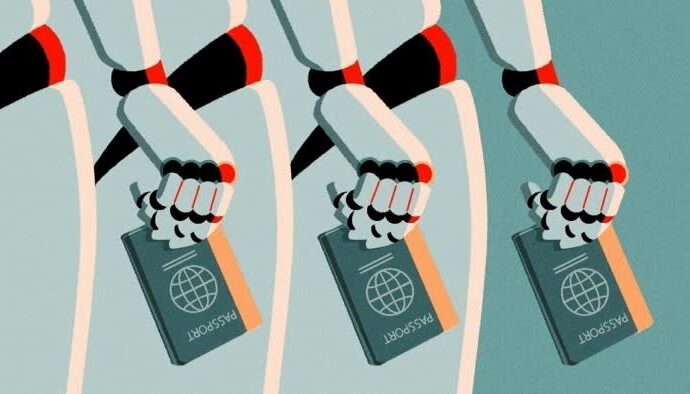Stay informed with free updates
Simply sign up to the Electric vehicles myFT Digest — delivered directly to your inbox.
China’s BYD is planning an assault on one of the quirkiest parts of Japan’s car market, highlighting its bold global ambitions by challenging the likes of Toyota in its own back yard.
The leading electric vehicle maker, whose cars overtook Tesla in European sales last month, plans to release a low-cost battery-powered kei car in Japan next year. The unique class of boxy minicars was worth $18bn in sales there last year and makes up about 40 per cent of the world’s fourth-largest car market.
BYD aims to loosen the decades-long dominance of the segment by Japanese carmakers including Toyota, Honda, and Nissan.
Atsuki Tofukuji, president of BYD Auto Japan, said it saw an opening for low-cost miniature EVs of a similar size to “Mr Bean’s Austin Mini Cooper”, as high taxes push up conventional fuel prices and petrol stations rapidly disappear in depopulating rural Japan.
“Kei cars fit the Japanese way of life extremely well,” he said in an interview with the Financial Times. “If customers properly understand the economic rationale, they are sufficiently willing to buy kei cars that aren’t made by the existing major brands.”
Chinese carmakers have been snatching sales away from Japanese carmakers in their traditional stronghold of south-east Asia, but the planned kei car is among BYD’s first to be designed for an overseas market without being sold first in China. Key details, such as driving range, price and the vehicle’s appearance, have yet to be unveiled.
Local bloggers have compared the latest challenge on home soil to the arrival of Commodore Matthew Perry’s black ships in the 1850s, which made clear the power and technology imbalance between Japan and the west.
However, analysts cautioned BYD would face an uphill battle to attract Japanese customers, who are fiercely loyal to homegrown producers, distrustful of Chinese brands and demand top-notch service from dealers. EV sales in Japan have also been abysmal at less than 60,000 units or just over 1 per cent of the market in 2024, according to official data.
The vehicle launch, scheduled for the second half of 2026, is set to come at a crucial time for Japan’s car sector. Profits could be crushed by US President Donald Trump’s tariffs and Washington is negotiating to reduce “non-tariff” barriers for foreign groups in Japan’s car market.
Foreign brands make up less than 6 per cent of the Japanese car market, with Tofukuji echoing Trump’s gripes about Japan’s onerous vehicle testing regime.
BYD entered the Japanese market in 2013 and offers three models; however, sales have been sluggish, with only 2,221 units sold in the year to March.
Executives from Shenzhen visited Japan two years ago and realised minicars were more popular than they had thought, prompting the push to widen its product offerings.
The carmaker plans to raise its number of stores in Japan to 100 by the end of the year, but many of the current 61 outlets face “tough” operating conditions, Tofukuji said. With the new EV minicar, he is confident of reaching a break-even point of 150 units per store — which would equate to 15,000 annual sales in total.
BYD’s new car will be cheaper than the compact Dolphin that sells for ¥2.9mn ($20,700). Nissan’s Sakura EV minicar, which has a driving range of 180 kilometres on a single charge, sells for ¥2.6mn.
Japan may not be the only target for BYD’s mini EV, considering how the masters of “supercompact” cars are themselves eyeing potential markets in India, Europe and other regions.
“Kei EVs are likely to gain more opportunities to thrive globally,” said Toshihiro Suzuki, chief executive of Suzuki, a pioneer of the cheap minicar, when asked about the BYD threat.
While suited to Japan’s tight roads and parking spaces, the kei cars’ popularity has been driven by the tax and insurance breaks given, if they meet certain conditions. They include not exceeding maximum dimensions, an engine smaller than 660cc, and a power output of less than 47 kilowatts.
Developing a specialised engine for the Japanese market has historically been too onerous for many foreign car manufacturers; however, Tofukuji expects to use cheap, readily available batteries and motors in its minicar.
“One clear advantage unique to EVs is the ease with which their powertrains can be designed and manufactured,” he said.


